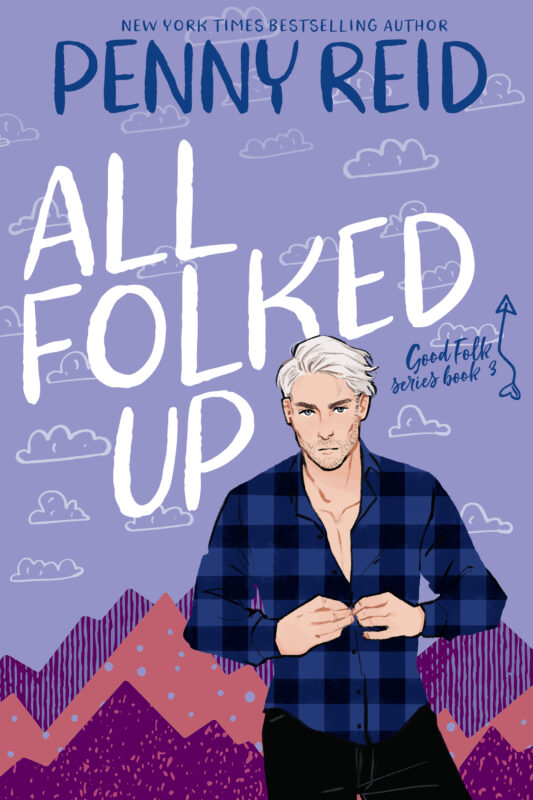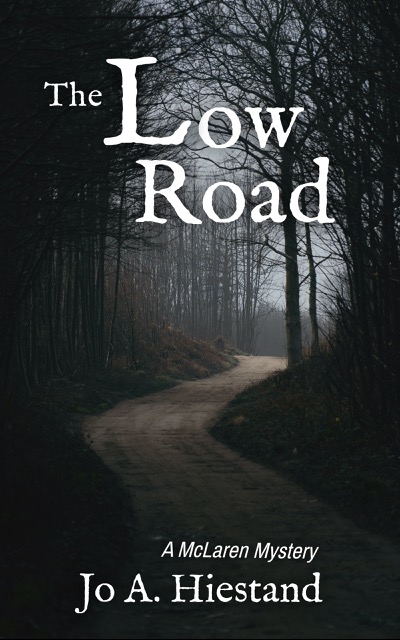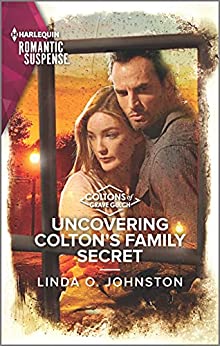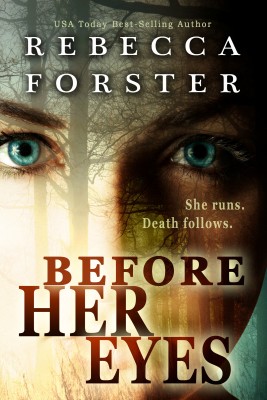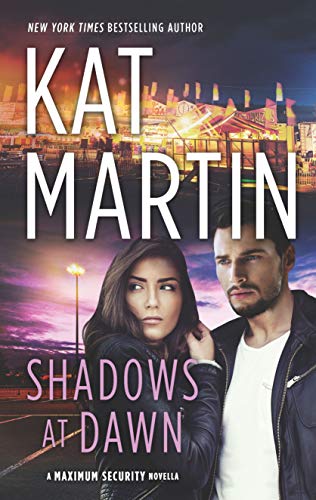Omigosh, I Think I’m a Cougar!
August 13, 2008 by A Slice of Orange in category Archives tagged as Bobbie Cimo, Eye on Hollywood
I know I’ve have had more than my share of adolescent crushes when growing up either on actors, teen idols or singers.
By the time I reached my thirties all of those girly crushes were behind me–so I thought, until a young singer came on the scene by the name of Michael Buble. I told myself that I really admired this young man’s singing. The energy he put in his songs reminded me a lot of Bobby Darin. His style was a throw back to the “Rat Pack, let’s be cool â€era. So I know for a fact, if he had been popular when I was in my teens or early twenties, he would have been the devilishly charming, bad boy type that I would have had a crush on.
Because I’m such a fan of big bands, and of the Great American Song book, I always have, either on my computer or my satellite radio, a station that plays the standards. So when Mr. B. first came out, I like to think I discovered him before anyone else did. At least it felt that way, since whenever I asked anyone about him or his music, nobody seemed to know who he was.
By the time his first CD came out, he was doing small concerts, and I made a point to see most of them.. Then one day I got word he was doing a free outdoor concert, right next door to where I work, at The Grove. You know I wasn’t going to miss that. As it turned out, it was one of his best shows…not that I’ve ever seen a bad Michael Buble show.
After his performance, he was escorted a few yards away, over to the third floor of the Barnes & Noble. If you had bought his CD that night, you were given a paper bracelet, which granted permission for you to stand in line to meet him on a one-to-one basis. I figured I was ahead of the game, as I had bought my CD at B&N two weeks earlier, even before I knew there was going to be a concert. Unfortunately, B&N didn’t believe me…they wanted a receipt. One that stated that I had bought the CD that night and at their store. I won’t bore you with all the details, but after much negotiation, Barnes & Noble finally saw things my way and at last I was permitted to stand in line, not only with a different colored paper bracelet than the rest of the people, but with one stipulation. I had to be at the end of the line and every time a new group followed me, with the right colored bracelet, I had to agree to move to the back of the line.
Okay, for anybody who knows me really well…the word patience and Bobbie, just don’t go together. So after being asked to move to the end of the line for the third time…it was now renegotiation time. A settlement was reached, whereas if the manager asked me to move one more time, he wasn’t ever going to see his next birthday.
As I waited in line, I was captured by two things: First, how the buzz of excitement around you can become infectious and secondly, how all the fans in line were so much younger than me.
That‘s when I asked myself, “What the heck was I doing here, acting like a groupie?†But as the line moved, and we snaked around the aisles of books and I got closer to Michael, I saw more and more women my age ahead of me. Some with their daughters, some alone and some even older than me. Which made me realize, that there is no age limit for someone to enjoy good entertainment. Would we have someone in their forties, fifties, or sixties…even seventies, not read one of our books because it was about some twenty or thirty year old hero and heroine? Or think it was silly for a fan to stand in line to have their book signed and tell one of our authors that they loved her/his work? There is no age limit to enjoy someone’s talent–no age limit to receive praise or be given admiration.
Finally my moment with Michael B. was upon me. As I handed over my CD for him to sign and was babbling on about how much I enjoyed him and his work, I suddenly found myself saying, “I feel a little bit like Mrs. Robinson, here.†The next thing I knew, Michael had taken my hand, and began to sing the words of Simon & Garfunkel’s hit song from “The Graduate,†Here’s to you, Mrs. Robinson. Coo coo ca choo, Mrs. Robinson. Then, without any prompting, he leaned into me as a picture was snapped of us together. I heard some oohs and aahs, from the girls standing around us. And I walked away, one happy fan.
To be honest, “Mrs. Robinson†was never one of my favorite songs. But now when I hear it on the radio, I turn up the sound, smile, and inwardly growl like a contented cougar. Grrrrr
A Writer’s Pursuit…
August 12, 2008 by A Slice of Orange in category Archives tagged as A Writer's PursuitOF A MESSAGE
If you were locked in a tower, a prisoner, what would your message to the world be? Would it be a few short sentences? An ? Graffiti on the wall?
Back in June, I had the opportunity to explore the Tower of London. And in the Beauchamp Tower where many of the prisoners were held, intricately hand-carved inscriptions decorate the walls. They truly became works of art. The poetic words, the intellectual defense, and the design all combined into one message, shows us high-ranking political prisoners stayed there. And judging by the amazing details in the graffiti, some obviously stayed in that tower much longer than others while some prisoners didn’t have a chance to finish their message…because the person was freed, escaped, or put to death.
Did they know back during King Henry VIII’s reign (and earlier) that centuries later people would tour those towers and read those messages?
One entire room inside the tower is etched with inscriptions, but I’m only posting a few pictures so you’ll get an idea of what I’m writing about. I believe you can click the photo to enlarge; it might make it easier to view, if you wish. 🙂
This one floors me, and it doesn’t look like it was finished…
Just in case you can’t read this well…It’s a list of all the inscriptions on the walls and who carved them. That’s quite a few!
It makes me wonder what these prisoners would do in this day and age to get their message out. They’d have the media at their disposal now. What do you think?
Michele
Michele Cwiertny writes dark paranormal romance and romantic suspense. To find out more about her, please visit her website, michelecwiertny.com, or her personal blog, Michele’s Writing Corner.
RWA San Francisco: Video Overview
August 11, 2008 by A Slice of Orange in category Archives tagged as Confessions of a Podcast GoddessLike many OCC members, I just returned from the RWA conference in San Francisco with so much to share–including the 7 gigs of video I shot while I was there.
Unlike Alfred Hitchcock, who storyboarded his shots, I shot a lot of video knowing I won’t use it all. I never know what will work or what won’t.
Some of what I shot was planned–like following Jane Porter around for a day and shooting video for her podcast (I’d set this up with her ahead of time). When it was time to sit down with Jane and talk about her books, Mrs. Perfect, and Flirting with Forty (a holiday movie for Lifetime this December starring Heather Locklear), I needed a pretty setting with good lighting.
And quiet.
I love RWA conference attendees. When I found a great spot in the downstairs lobby to interview Jane, I noticed several people sitting nearby, chatting. I asked them if they minded us filming a video (which meant no talking). They all agreed and for the next several minutes, Jane kept them spellbound with stories about her life, books, etc. When it was over, she had made several new fans!!
Most of what I shot wasn’t planned: like sitting down next to an Australian gal, Juleigh Start, the Author Liaison for the Australian Romance Readers Convention in February 2009, so we shot a promo for the upcoming conference.
Then there was the unexpected: like attending a workshop that was cancelled and spending the time in the PAN lounge with RWA authors shooting podcasts, including a fun video for my dear friend, Jacqueline Diamond. Jackie gave me a super interview, which I’ll be putting up asap.
And who can forget the Harlequin party at the Four Seasons Hotel? It was nonstop dancing–and yes, I’ve got it all on video.
I always shoot video of the Literacy Signing–it makes me smile to see all those readers and fans lined up to meet their favorite authors.
I got more than a few curious stares when I was shooting video in Italian in the lobby at the hotel (my books have been translated into Italian and I talk with the Italian fans on the Harlequin Italy blog ) and on Market Street. I want to give the Italian readers a view of San Francisco.
 And I’ve got video of my Spies, Lies & Naked Thighs fishnet purple tights–they matched my bookcover and were a fun conversation piece.
And I’ve got video of my Spies, Lies & Naked Thighs fishnet purple tights–they matched my bookcover and were a fun conversation piece.
And so much more…
It’s all coming up!!
Stay tuned…
But first, I’ll be putting up a fab interview I did with our August afternoon speaker, Tod Goldberg. We talked about writing and my fave TV show, Burn Notice (Tod is writing the books based on the series).
See you in September!
Best,
Jina
Jina Bacarr is the author of The Blonde Geisha , Naughty Paris, Tokyo Rendezvous, a Spice Brief, and Spies, Lies & Naked Thighs, featuring a female Indiana Jones.
Coming in April 2009: Cleopatra’s Perfume, set in Cairo and Berlin during WWII.
Jina says, “What if Casablanca was erotic…”
“Get Caught in the Act!”
Cleaning. Oh Joy!
August 10, 2008 by A Slice of Orange in category ArchivesBy Nancy Farrier
I hate cleaning. I mean the deep cleaning that you always put off, or at least I do. For instance, going through the black hole in my bedroom, I usually refer to as my closet. Yes, I know there are those who do this on a regular basis. I’m not one of them.
After all, that comfortable pair of sandals looked very nice. There might even be a way to fix that broken strap some day, even though super glue doesn’t work. Then there are the old clothes. I could shed some pounds and fit back into the ones I haven’t worn in years. I’m not real concerned about fashion, so it won’t matter that they aren’t in, plus by the time I fit into them they might be the height of fashion again. That would be a reason to hang onto them.
Then, there are all the bits of yarn, the only slightly damaged gift bags, the odd pieces of wrapping paper that might be the perfect size for the next gift, and the list goes on. How am I supposed to part with all those valuables?
When I do take a deep breath, gather my resolve, and begin to sort and pitch, I’m amazed at the change. I have room in that closet again. I’m not living in fear for my life every time I open the door.
I often find editing my writing to be the same difficult chore. I recall the first time I had to change scenes that were perfect. (In my eyes only.) It was hard. It was painful. Yet, when I listened to the editor, and followed the suggestions I’d been given, the finished work was so much stronger and more believable. Who knew all those ly adverbs, and flowery adjectives, weren’t necessary?
Killing my darlings still isn’t easy. However, I know the hard work and persistence will pay off. My readers will be happier, and so will my editor. As for the closet—I love to live in fear.
It’s Worth It
August 9, 2008 by A Slice of Orange in category Archives tagged as It's Worth ItAN EMBARRASSMENT OF RICHES
By Kitty Bucholtz
I finally recovered from the RWA National Conference that I attended in San Francisco last week. Whew! What a week! I drove up with my friend Lori and her husband and son (both of whom are sweet and cute and fun!). Then I stayed with my friend Marcy for a few days while we brainstormed all kinds of writing-related ideas including weighing the pros and cons of me getting a Master’s in Creative Writing degree. (I think I’m going to do it!) Remember in last month’s column I was stressing because I needed to see my friends’ little baby Grace? Saw her! Spent the whole day with them and I wasn’t even asked to change her diaper – excellent!
After such a great start to the week, I was eager for the conference to begin. It was a wonderful combination of fun and work. I had “not dinner†with some OCC friends (the restaurant was so ba
One of the best parts for me was hearing someone say, “Send it to me.†I tracked down an agent and an editor who I’d researched a few days before the conference, and both want a proposal from me. (Yea!) We heard some great keynote speakers (Victoria Alexander was a hoot!), learned from some great teachers (Eric Maisel’s “Creativity for Life†might have been my favorite class), and met a lot of people! Lori and Lynn and Kimberly and I made a chal
The trip was expensive in terms of money and time, and it took me a few days to get my energy back and my life back in order once I returned. But as Lori mused on the long drive home, we received an embarrassment of riches. This wealth is pushing me to work harder and faster than ever before (remember those two proposals I need to get out?), but it feels great, and I totally believe it’s worth it!

Kitty Bucholtz writes romantic comedies because, well, she lives one! She wrote her first book in the NBC cafeteria, the second snowed in at a Reno hotel, and the third from a tiny apartment in Sydney. Even though she loves talking about, writing about, and teaching about writing, she’s pretty sure she knows at least three people who aren’t writers.
Affiliate Links
A Slice of Orange is an affiliate with some of the booksellers listed on this website, including Barnes & Nobel, Books A Million, iBooks, Kobo, and Smashwords. This means A Slice of Orange may earn a small advertising fee from sales made through the links used on this website. There are reminders of these affiliate links on the pages for individual books.
Search A Slice of Orange
Find a Column
Archives
Featured Books
UNDERCOVERING COLTON’S FAMILY SECRETS
Coming face-to-face with her past…
More info →SHADOWS AT DAWN
Jax and Mindy have to put aside their overwhelming attraction, but if they live through this, all bets are off…
More info →Newsletter
Contributing Authors
Search A Slice of Orange
Find a Column
Archives
Authors in the Bookstore
- A. E. Decker
- A. J. Scudiere
- A.J. Sidransky
- Abby Collette
- Alanna Lucus
- Albert Marrin
- Alice Duncan
- Alina K. Field
- Alison Green Myers
- Andi Lawrencovna
- Andrew C Raiford
- Angela Pryce
- Aviva Vaughn
- Barbara Ankrum
- Bethlehem Writers Group, LLC
- Carol L. Wright
- Celeste Barclay
- Christina Alexandra
- Christopher D. Ochs
- Claire Davon
- Claire Naden
- Courtnee Turner Hoyle
- Courtney Annicchiarico
- D. Lieber
- Daniel V. Meier Jr.
- Debra Dixon
- Debra H. Goldstein
- Debra Holland
- Dee Ann Palmer
- Denise M. Colby
- Diane Benefiel
- Diane Sismour
- Dianna Sinovic
- DT Krippene
- E.B. Dawson
- Emilie Dallaire
- Emily Brightwell
- Emily PW Murphy
- Fae Rowen
- Faith L. Justice
- Frances Amati
- Geralyn Corcillo
- Glynnis Campbell
- Greg Jolley
- H. O. Charles
- Jaclyn Roché
- Jacqueline Diamond
- Janet Lynn and Will Zeilinger
- Jaya Mehta
- Jeff Baird
- Jenna Barwin
- Jenne Kern
- Jennifer D. Bokal
- Jennifer Lyon
- Jerome W. McFadden
- Jill Piscitello
- Jina Bacarr
- Jo A. Hiestand
- Jodi Bogert
- Jolina Petersheim
- Jonathan Maberry
- Joy Allyson
- Judy Duarte
- Justin Murphy
- Justine Davis
- Kat Martin
- Kidd Wadsworth
- Kitty Bucholtz
- Kristy Tate
- Larry Deibert
- Larry Hamilton
- Laura Drake
- Laurie Stevens
- Leslie Knowles
- Li-Ying Lundquist
- Linda Carroll-Bradd
- Linda Lappin
- Linda McLaughlin
- Linda O. Johnston
- Lisa Preston
- Lolo Paige
- Loran Holt
- Lynette M. Burrows
- Lyssa Kay Adams
- Madeline Ash
- Margarita Engle
- Marguerite Quantaine
- Marianne H. Donley
- Mary Castillo
- Maureen Klovers
- Megan Haskell
- Melanie Waterbury
- Melisa Rivero
- Melissa Chambers
- Melodie Winawer
- Meriam Wilhelm
- Mikel J. Wilson
- Mindy Neff
- Monica McCabe
- Nancy Brashear
- Neetu Malik
- Nikki Prince
- Once Upon Anthologies
- Paula Gail Benson
- Penny Reid
- Peter Barbour
- Priscilla Oliveras
- R. H. Kohno
- Rachel Hailey
- Ralph Hieb
- Ramcy Diek
- Ransom Stephens
- Rebecca Forster
- Renae Wrich
- Roxy Matthews
- Ryder Hunte Clancy
- Sally Paradysz
- Sheila Colón-Bagley
- Simone de Muñoz
- Sophie Barnes
- Susan Kaye Quinn
- Susan Lynn Meyer
- Susan Squires
- T. D. Fox
- Tara C. Allred
- Tara Lain
- Tari Lynn Jewett
- Terri Osburn
- Tracy Reed
- Vera Jane Cook
- Vicki Crum
- Writing Something Romantic
Affiliate Links
A Slice of Orange is an affiliate with some of the booksellers listed on this website, including Barnes & Nobel, Books A Million, iBooks, Kobo, and Smashwords. This means A Slice of Orange may earn a small advertising fee from sales made through the links used on this website. There are reminders of these affiliate links on the pages for individual books.





